Sinai Urban Health Institute (SUHI) and Health & Medicine have released results from a first-ever survey of employers working with Community Health Workers, aimed at mapping the landscape for CHWs across the region. The Cook County Common Indicator Employer Survey showed strong employment of CHWs in the wake of the pandemic, but that Cook County faces some tough decisions as the public health emergency ends.
“CHWs make a strong impact on health outcomes in some of our most challenged communities, and were particularly impactful during the COVID pandemic,” said Stacy Ignoffo, Executive Director of Community Health Innovations for SUHI. “But as the public health emergency ends and pandemic funds dry up, employers are facing difficult choices. We need to pursue more sustainable funding mechanisms for to keep these programs viable with competitive wages and benefits for those doing this critical and beneficial work.”
The Cook County results follow up on the first Community Health Worker Common Indicator Employer Survey for all of Illinois that was conducted by SUHI and Health & Medicine along with the Illinois Department of Public Health, the Illinois Public Health Association, the Illinois CHW Association. That survey was open to all Illinois-based CHW programs. 298 organizations received invitations to participate and 120 responded. SUHI and Health & Medicine received funding from the Lloyd A. Fry Foundation to do the Cook County specific analysis of those results.
61 organizations that serve Cook County took the survey and included community-based organizations, hospitals and health systems, federally qualified health centers, local health departments, behavioral health organizations and school-based health centers. 64% of the respondents serving Cook County said none of their funding comes from a sustainable source. Instead, many CHW programs are supported with funding sources considered unsustainable such as short-term and private grants. The fragile and unpredictable nature of unsustainable funding leaves many CHW jobs in a state of instability.
“CHWs are trusted healthcare messengers and navigators who live and work in the communities they serve, often in the most challenged areas. Not only do they improve health outcomes for people living with disproportionate shares of chronic disease and trauma they also hire directly from these communities, creating true employment and economic opportunities,” said Angela Eastlund, Senior Workforce Policy Analyst, Health & Medicine. “Clearly, the value of CHW programs extends far beyond the pandemic in advancing health equity and social justice in transforming healthcare delivery.”
The results also showed that while wages for CHWs varied widely, Illinois matched the national averages of $19.67/hour or $35,754/year, while Cook County exceeded them. There were also significant variabilities in benefits offered for full-time versus part-time workers. For example, only 20% of part-time CHWs received health insurance as opposed to 75% of full-timers.
There is also the need for more standardized CHW models in terms of job descriptions and alignment with national competencies for CHW training and career development. 69% percent of respondents have a written CHW description based on that from the American Public Health Association. However, 22% had no definition at all. More than 20 different job titles were reported for CHW work including CHW, outreach worker, care coordinator, patient navigator and community health educator.
“We need to continue to characterize the CHW landscape in Cook County and Illinois with subsequent surveys and research,” said Ignoffo. “It’s important to ensure that organizations can provide a consistent living wage and benefits for CHWs via ongoing funding mechanisms to continue this vital work beyond the pandemic.”
To read the entire Cook County Common Indicator Employer Survey Report, click here.
